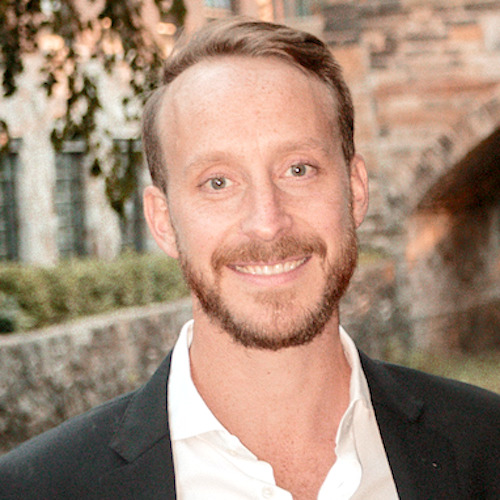
Even before the pandemic, a healthcare labor shortage was confronting America. COVID-19 made matters worse, as the strain of the relentless virus put a monumental burden on an already burned-out workforce of caregivers in the United States.
But are solutions — or perhaps huge steps in the right direction — staring us in the face?
On May 5, 2021, the American Hospital Association voiced support for the Healthcare Workforce Resilience Act (H.R. 2255/S. 1024), bipartisan legislation that would expedite visa authorization for up to 40,000 qualified international nurses and physicians. First introduced in 2020 to support organizations facing staffing shortages during the pandemic, the legislation still hasn’t received a vote and continues to lose momentum amid other priorities.
Fortunately, there’s a renewed enthusiasm to help bring talented and driven immigrants and other qualified healthcare workers to our hospitals, skilled nursing and other long-term care communities.
June 30, Rep. Lloyd Smucker (R-Penn.) revived a 2018 bill — the Workforce for an Expanding Economy Act (H.R. 4288) — to develop a new H-2C visa classification for nonseasonal, nonagricultural work that does not require a college degree, including those who work in long-term care. But will the 117th Congress act to create immigration reforms that will address workforce needs?
Reliance on immigrants is evident
Caregiving represents an accessible entry into the workforce for immigrants, with many jobs requiring no certification and involving minimal cost to get certified. High demand in the home-care field, which is expected to rise 46% by 2028, means these positions aren’t disappearing as are those in other industries. Nor are they likely to be squeezed by automation in the long term. In fact, entry-level healthcare positions can be a pathway to other healthcare positions that offer better earnings and career advancement.
It is not surprising that a study by Leah Zallman in Health Affairs uncovered that 28% of the direct-care workforce and 31% of home health aides are born outside the United States. Noncitizen immigrants make up 5% of the U.S. population but account for 11% of home-healthcare workers and an astonishing 26% of direct-care workers.
What’s currently being done?
There is some good news regarding federal funding support for the healthcare industry. The Provider Relief Fund, part of the Coronavirus Aid, Relief, and Economic Security (CARES) Act, already has distributed more than $76 billion to healthcare service providers across the country, providing critical financial support for healthcare facilities that have been stretched thin the past 18 months.
The American Healthcare Association / National Center for Assisted Living, LeadingAge, Argentum and the American Seniors Housing Association are advocating for a fourth distribution in the immediate future to help with potential surges of the virus this fall. Additionally, the Coronavirus State and Local Fiscal Recovery Funds program recently was introduced as part of the American Rescue Plan. Those funds can be used to “provide premium pay for essential workers,” such as staff at nursing homes, hospitals and home care settings. The program also could add a much-needed boost to wages in an often overworked and under-paid environment — though at least for the moment, wages are low and relatively stagnant, even in a tight labor market.
Beyond a paycheck, who is caring for caregivers?
Being able to make a living fulfills people’s primary physiological and safety needs. That is essential and can’t be ignored. But direct recognition and acknowledgment of their significant impact on people’s lives is extremely important, too, fulfilling what Maslow refers to as self-actualization.
As the Harvard Business Review has noted:
Research suggests that employees in fields such as healthcare, social work and education tend to be more motivated to do work that has a positive impact on others, to place a higher value on social recognition, and to be less motivated by salary than their private-sector counterparts.
It stands to reason then that organizational culture and dedicating resources to recognition efforts becomes essential in healthcare, too — perhaps more so than in any other industry.
Ceca Foundation has honored many deserving immigrants as Ceca Award recipients for their caregiving skills, including recent honorees Modupe Akinola (Nigeria), Barba Kargbo (Sierra Leone), Denise Watson (Jamaica) and Jinchun Ma (China), who all stood out for exceptional acts of compassion and caregiving.
What’s next?
Immigrants are ready to step up. We need our legislators to support the needed influx of qualified caregivers for the sake of our nation’s sick, elderly and disabled. We must ensure wages for these healthcare workers are livable for those keeping us afloat and attractive to those entering the field. And we should all look to honor healthcare workers who have gone above and beyond during the pandemic.
Nate Hamme is the president of the Ceca Foundation, a Washington, D.C.-based nonprofit that provides healthcare communities with a caregiver recognition solution designed to leads to improved patient and resident care. Learn more at cecafoundation.org.
The opinions expressed in each McKnight’s Senior Living guest column are those of the author and are not necessarily those of McKnight’s Senior Living.


